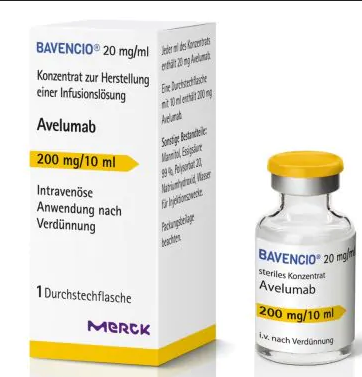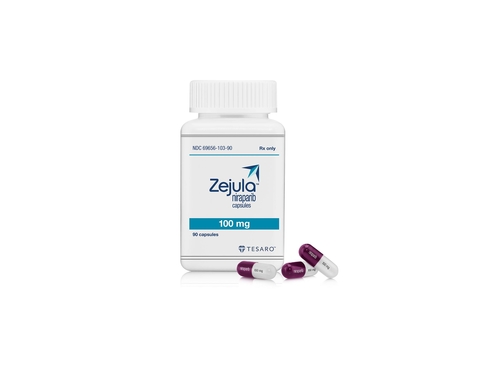The Ministry of Food and Drug Safety (MFDS) approved Bavenico, a monoclonal antibody against programmed death ligand-1 (PD-L1) developed by Merck KGaA and Pfizer as a pharmaceutical drug for use in immunotherapy, on Friday.

The treatment is the first FDA-approved therapy for patients with metastatic merkel cell carcinoma (mMCC), which is rare and aggressive skin cancer, with less than half of patients surviving more than one year and less than 20 percent surviving beyond five years
The drug received approval from the U.S. Food and Drug Administration in 2017.
The two companies demonstrated the efficacy and safety of the drug through an open-label, single-arm, multi-center study, called JAVELIN Merkel 200, conducted on 88 patients with histologically confirmed mMCC, whose disease had progressed on or after chemotherapy administered for distant metastatic disease.
The trial showed an overall response rate of 33 percent, while 11 percent of patients experienced a complete response and 22 percent of patients experienced a partial. Tumor responses were durable, with 86 percent of responses lasting for at least six months.
Also, 45 percent of responses lasted at least 12 months, while the duration of response ranged from 2.8 to over 23.3 months.
In addition to Merkel cell carcinoma, Merck and Pfizer are conducting clinical trials to confirm the efficacy of the drug for non-small cell lung cancer, as well as gastric, ovarian, rectal, nasopharyngeal and osteosarcoma.
Clinical trials are also underway to investigate the combined effects of Pfizer's renal cell carcinoma target treatment, Inlyta (ingredient: Axitinib), and its cancer treatment Xalkori (ingredient: crizotinib).

The Korean regulatory agency also approved Takeda’s Zejula, a once-daily oral Poly ADP-ribose polymerase inhibitor available for the maintenance treatment of women with recurrent ovarian cancer, regardless of breast cancer gene mutation or biomarker status.
MFDS licensed Zejula as a sole maintenance therapy for patients with platinum-sensitive recurrent hyperproliferative ovarian cancer who showed a complete or partial response to platinum-based chemotherapy. The license also states that the patients need to have received platinum-based chemotherapy at least twice.
Regarding dosage, patients weighing less than 77 kg or platelet counts of less than 150,000/μl should start treatment with a dose of 200mg once a day, while other patients should receive a dose of 300 mg once a day.
Also, the ministry has ordered taking the drug within eight weeks of the most recent platinum-based chemotherapy. Warnings include the possibility of myelodysplastic syndrome, acute myelogenous leukemia, and malformations.
MFDS approved the drug after confirming the drug’s efficacy through ENGOT-OV16/NOVA trial, a double-blind, placebo-controlled, international phase 3 study of the medicine, which enrolled 553 patients with recurrent ovarian cancer who had achieved either a complete response or partial response to their most recent platinum-based chemotherapy.
Treatment with ZEJULA reduced the risk of disease progression or death by 73 percent in patients with germline BRCA mutations and 55 percent in patients without germline BRCA mutations.
Also, Zejula showed progression-free-survival of 21 months in patients with BRCA gene mutation and 9.3 months in patients without mutations.

